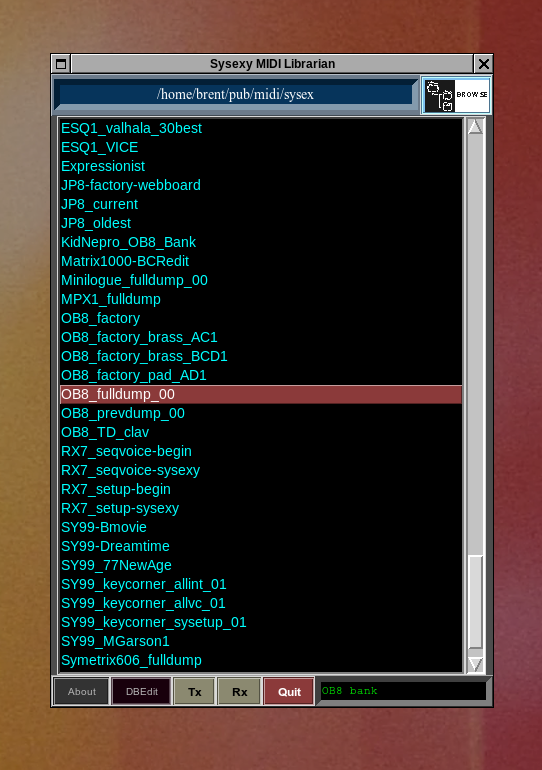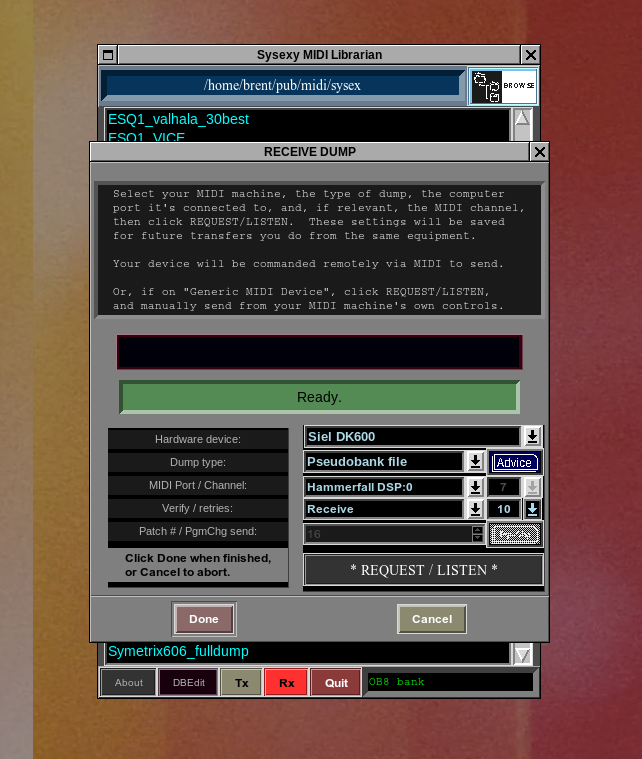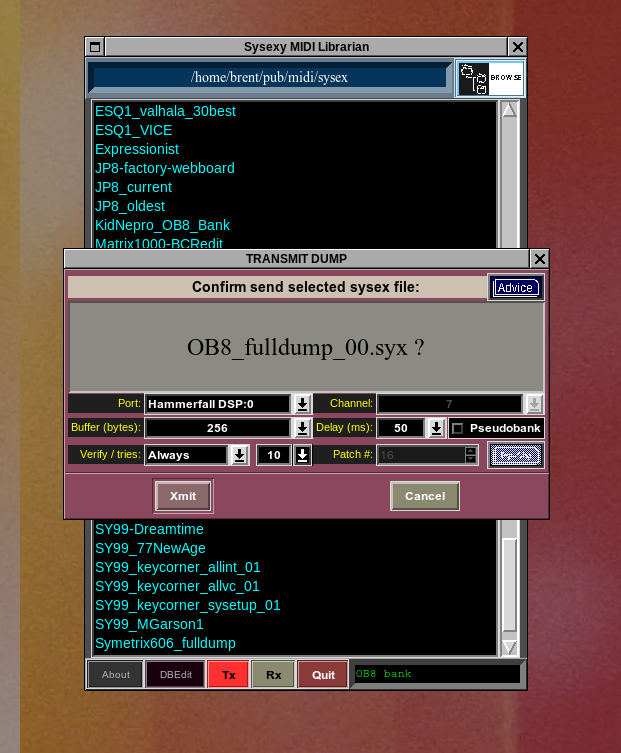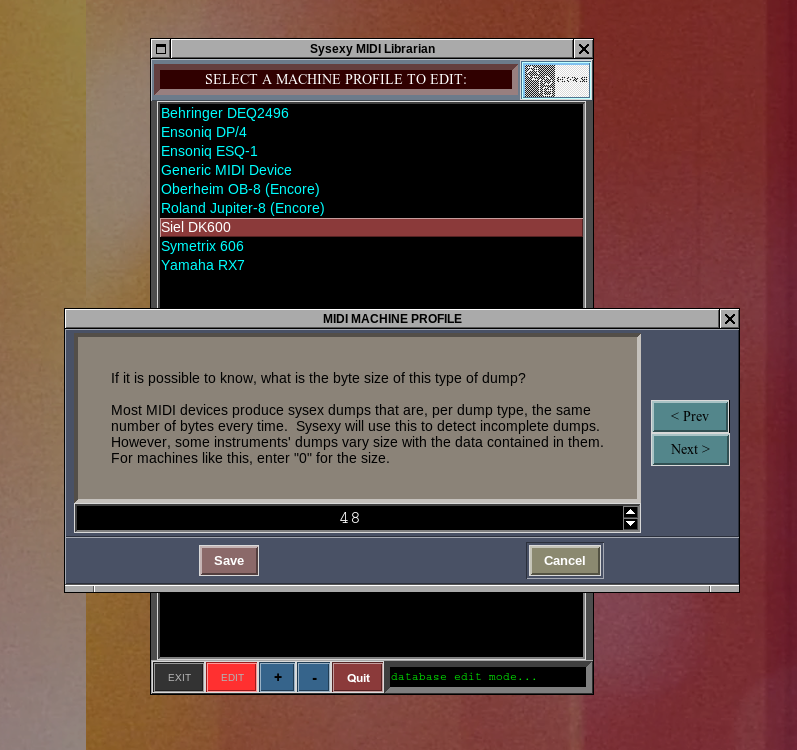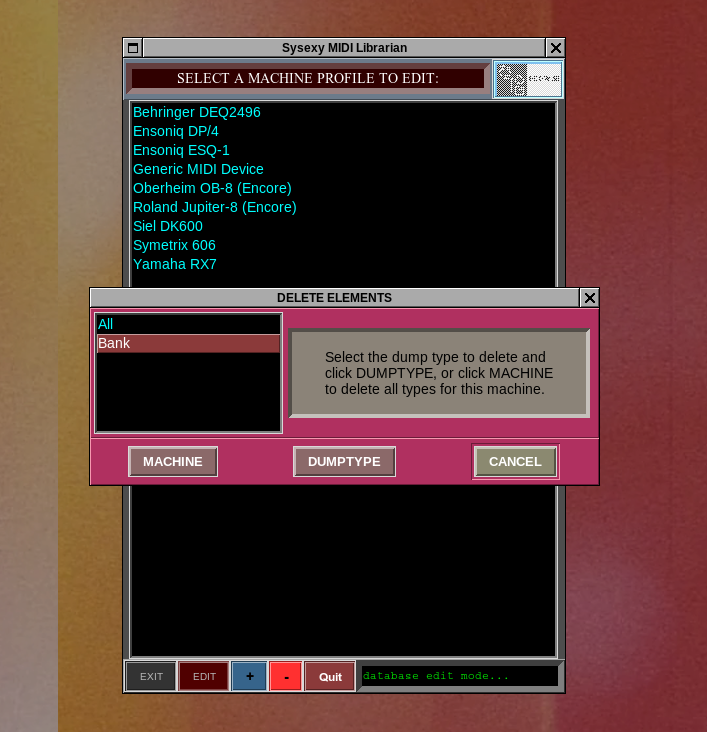Features
- GUI interface with keyboard shortcuts -- no more 'amidi' commands.
- Database of known gear, and MIDI commands to interact with it: For machines in Sysexy's database, it will remotely command the machine to send dumps without the need to do anything on the instrument's own control panel, and recognize its various types of dumps from eachother.
- Handles unknown gear as "generic", as 'amidi' command, and MIDI hardware appliances like Yamaha's MDF-2 or -3 would do. In other words, it's not absolutely necessary that Sysexy know about your machine to get a sysex dump done -- unless your instrument has quirks that are impossible to work with generically, as many devices do. Of course, such devices can be made to work if they are setup for non-generic support as a recognized device in the gear database (more below). Teach Sysexy about the weird requirements of your instrument, and they will talk to eachother!
- Settings file stores your preferences (per synth) for physical MIDI port, channel, buffer size, transmit delay, verify/retries...etc.
- Gear database contains advice for dumps from hard to work with synths, for those instruments that are just a little eccentric.
- Recognizes your sysex dumps as coming from a particular synth when you scroll a highlighter bar over them, without having to even select the file. It knows supported MIDI machine files by "fingerprint," and will tell you what they are in a message window at the bottom as you scroll -- great for folders full of sysex files from who knows where, with unhelpful filenames.
- Verify/retry feature for devices/systems that are prone to drop or corrupt transfers for whatever reason. This setting is stored per device, so that only your gear that needs verify gets verify, and other more reliable instruments you have don't waste any time on it.
- "Pseudobank" feature for synths that can't do bank dumps -- to make them fake it and get virtual bank dumps anyway. (We're looking at you, DK600.)
- GUI gear database editor to let you enter the information/codes for your gear, and get device-tailored support for machines that Sysexy doesn't ship with machine profiles for yet, without having to directly edit config files.
- Handling of instruments with idiosyncratic/non-standard behavior -- embedded MIDI channels inside dumps, embedded patch numbers, even weird CC commands, all specified in the gear database for each device. This makes it possible to do sysex dumps from devices that normally won't talk to anything that isn't specially made to receive a dump from that instrument model. Needless to say, amidi doesn't do this, and neither do hardware appliances (at least not for dumps from a different manufacturer's gear).
- Written in pure Perl, executable currently taking only 117kB of disk space (take that, Java!). Sysexy does not run amidi or any other Linux shell command under the hood. Everything it does is Perl, running from a single executable. Leave Sysexy running while you sequence, run your DAW, whatever. Its GUI is small and unobtrusive, and it will stay out of your way.
